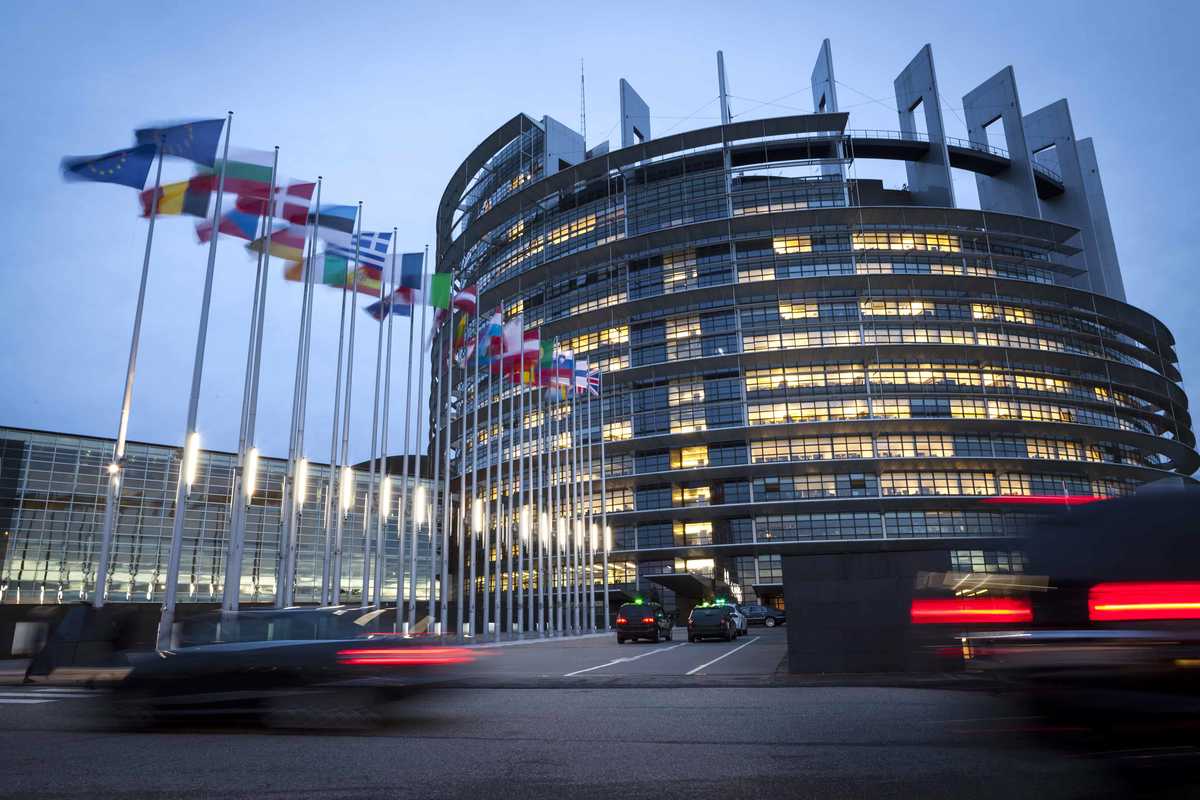EU shipping must use 100% green fuels by 2050 – T&E
New EU regulators must align the FuelEU Maritime’s “decarbonisation trajectories with the EU’s net zero goals, setting a target of 100% green fuels by 2050 at the latest,” says a Transport & Environment (T&E) report.
 PHOTO: The European Parliament building in Strasbourg, France. Getty Images
PHOTO: The European Parliament building in Strasbourg, France. Getty Images
The EU will hold elections to elect members of the European Parliament between 6-9 June next year. Ahead of the elections, T&E has released a report setting forth its key recommendations for the next five years to help elected representatives lay the foundation for net-zero shipping by 2050.
“The EU urgently needs to modernise its industry and economy if it wants to avoid falling behind rivals in the US and Asia. The Green Deal has been an inspiration for environmentalists across the continent, and the world. Much has been achieved,” T&E writes.
“But runaway climate change, high energy prices and cleantech rivalry cannot be ‘paused’ or wished away. Now more than ever the EU needs to deliver, deepen and accelerate its transition to a fossil-free economy.”
The report calls on the EU to align FuelEU Maritime's decarbonization goals with the EU's net zero by 2050 goal and set a goal of using 100% green fuel by 2050 for the shipping sector.
It also encourages regulators to set a target reduction of 90% in net climate emissions by 2040 compared to 1990 levels, which includes shipping emissions. This 2040 target should include a clear roadmap and an end date for the fossil fuel phaseout, according to the T&E.
Furthermore, the report proposes a permanent "fossil fuel profit tax" on oil and gas companies to fund the energy transition. This tax will prevent the companies from milking off profits from price volatility and prevent OPEC from manipulating prices, it says.
The authors advise the EU to scale up production of low- and zero-emission marine fuels such as e-ammonia and e-methanol with revenue from the carbon levy imposed on shipping in the next five years. Additionally, regulators should “reject the use of e-fuels in road transport” to maximize e-fuel availability for shipping.
“Planes and ships can only be sustainably decarbonised by shifting to 100% green fuels. Since biofuels are either not sustainable (food), or not scalable (waste-based), the heavy lift must come from hydrogen-based e-fuels such as e-kerosene for aviation and e-ammonia/ e-methanol, wind technologies and efficiency measures for shipping,” the report explains.
It also advocates an ambitious €1 trillion ($1.05 trillion) climate investment plan by 2030. A major focus of the investment plan must be to deploy "key technologies such as batteries and hydrogen fuels like ammonia for ships", it states.
Finally, it recommends that only "most efficient" ships with the "A-rating", which is the highest CII-rating, be allowed to dock at EU ports after 2030, if EU wants to meet its decarbonisation ambitions.
By Konica Bhatt
Please get in touch with comments or additional info to news@engine.online





